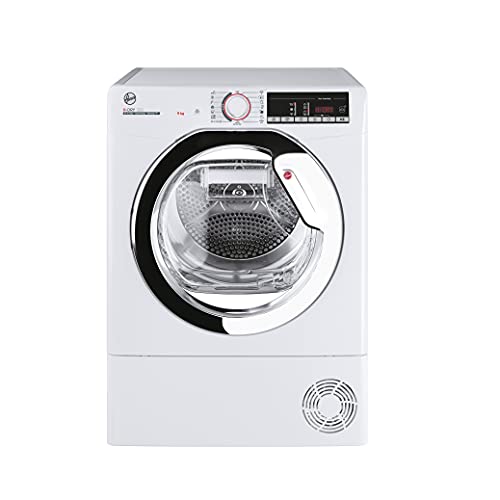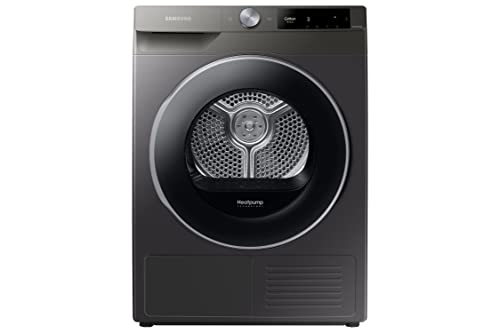5 Killer Quora Answers On Tumble Dryers Heat Pump Vs Condenser
페이지 정보

본문
 Heat Pump Vs Condenser Tumble Dryers
Heat Pump Vs Condenser Tumble DryersTumble dryers come in a variety. John Lewis has vented and condenser tumble dryers available in stores and online, with expert sales advisors to help you find the perfect one for your needs.
 Vented models must be connected to an external vent, whereas condenser units don't, and can be put in wherever you'd like them to be in your home. Condenser machines eliminate moisture by moving the hot air into a separate area and then turning it into liquid water. This is collected in a container which needs to be emptied regularly.
Vented models must be connected to an external vent, whereas condenser units don't, and can be put in wherever you'd like them to be in your home. Condenser machines eliminate moisture by moving the hot air into a separate area and then turning it into liquid water. This is collected in a container which needs to be emptied regularly.Dryers that use heat pumps are more energy efficient
The modern world of laundry has seen a number of innovations including heat pump tumble dryers. These dryers are efficient and gentle on fabrics. They are also more flexible than vented and condenser models in terms of placement.
The heat pump dryer works by capturing warm air and recycling it to dry clothes. This is accomplished by combining an air conditioner with dryer. This method is extremely energy efficient and doesn't require venting. This makes them an excellent option for those looking to reduce their electricity bills as well as be more environmentally conscious.
Traditional dryers, on other hand, use a fan that blows hot air over the laundry that is tumbling. This hot air is then vented to the outside and replaced by room temperature air. The result is that a conventional dryer consumes a lot of electricity to dry laundry. In the long run, this can result in higher utility bills. Dryers that use heat are more efficient in terms of energy consumption and can cut costs for utilities by as much as 50 .
A heat-pump dryer is also more sustainable since it uses less water than traditional dryers. This is because it does not need to have an additional tank for its coolant, like gas dryers. Instead, it recycles the warm air that is removed from the dryer's drum.
A dryer that is heated by a heat pump is also advantageous because it doesn't require a vent. This could be a problem for those who live in tiny apartments and homes without a dedicated laundry room. This means that there is no need to clean the duct every six months like is required with traditional dryers. This will save time and effort for those who are already busy.
A heat-pump drying system could cost more upfront than a vented dryer, but it can save money in the end due to its low running costs. Peter McPhee, a senior program director at the Massachusetts Clean Energy Center, estimates that his family's heat pump dryer is saving hundreds of dollars per year.
Look for a heat pump dryer with sensors that detect when your laundry is done and stop the cycle. This will help you save electricity costs and reduce over-drying which can harm your clothes. Find a dryer that has a lint filter and a condenser. These parts must be cleaned regularly to ensure maximum efficiency.
They are quieter
The latest tumble dryers are more quiet than vented models, and especially models that have heat pump technology. This is because they circulate warm air within the laundry, instead of blowing it out. They are therefore more suitable for open-plan homes as well as smaller spaces. They are also gentler on clothing. Due to the lower temperatures, it may take a bit longer for them to dry.
The biggest drawback of heat pump dryers is that they cost more to purchase than vented tumble-dryers. This could be a major issue for households that are price-conscious. They are more efficient in energy use and green. They are also gentler on your clothes, meaning they are less likely to scratch or shrink them. They are also more user-friendly and have more programs than traditional vented drying machines.
Contrary to vented dryers that require external venting to expel damp air the heat pump models do not require this, making them a better option for homes with limited space or who aren't able to make structural modifications. This can be particularly helpful if you're living in an apartment or renting your home. Additionally, they're a good choice for people who are sensitive to humidity and are looking to avoid mold or mildew.
They work by extracting vapor from clothes, which later condenses into water. The evaporated vapor is recycled back into the dryer. Since it uses less electricity than conventional tumble dryers it's a green option. Heat pump dryers are also extremely quiet, allowing you to relax while your laundry is done.
They come with a few disadvantages, including a higher initial cost and a slower drying time. However their high energy efficiency and gentle care for fabrics are worth the extra money in the long term. These features make heat-pump tumble dryers heat Pump vs condenser dryers an excellent option for busy families, and there are models that will fit all budgets. It is important to take into consideration your use patterns and the total costs of ownership (purchase cost and operating costs) before deciding which type of tumble dryer is best for you.
The sizing is more flexible
You should consider a dryer with a heat pump if you want dryer that is energy-efficient and gentler on your laundry. These appliances dry your laundry with recycled hot air, which can save you money over time. These machines are not only more sustainable but also can be used in rooms with adequate ventilation without the need for an external vent. They also require less space to operate than vented dryers. They may take longer to finish drying your laundry than a vented model.
Traditional vented dryers use gas to heat the drum and release moisture. They are less efficient than heat pump and condenser models but still use much less electricity than other types of dryers. They are also an excellent choice for homes with limited energy needs.
Heat pump and condenser dryers utilize a heat exchanger in order to convert warm air into water which reduces their energy consumption by about half. They also sound less than other tumble dryers, and some models include dampening technology to reduce the noise levels of operation. They can be stacked with washers to save space, and a lot of models are suitable for wall-mounting.
A heat pump tumbler uses a combination of conventional and solar energy to complete its laundry cycle. It can reduce your energy bills by up to 50% when compared to a vented tumble dryer. It can also be used with an electric heater to further improve efficiency. But, it's important to remember that heating systems can be costly if you need to wash a lot of laundry.
While they can cost more upfront than a vented dryer and a vented dryer, heat pump tumblers are less expensive to run and offer more flexibility. They're also simple to use and come with a vast range of programmes, including ironing functions and anti-crease. Dryers can be used in a variety of rooms and are frequently recommended to those who live in apartments. These dryers are also a good option for people who live in areas that have poor air quality or for those who are looking to reduce their carbon footprint. The best tumble dryer for your home will depend on your laundry habits, the amount of space, and budget.
The price is higher
Like the name suggests, heat pump dryers use the combination of cooling and heating technology to dry your clothes. They are more efficient than vented tumble dryers and can save money on your electric bill. They also have a quieter sound, and are gentler on your clothes. However, they do cost more upfront than vented models. The cost is offset by the energy savings in the long term.
The dryers that use heat pumps have a special heat exchange system that reuses the hot air to warm your laundry. This can reduce energy consumption by up to 15 percent. They can also save you time and money by detecting the amount of moisture in your laundry and Tumble dryers heat pump vs condenser adjusting the cycle accordingly. They also have less environmental impact than vented tumble dryers.
The Beko DPHR8PB561W 8Kg Heat Pump Tumble Dryer is an excellent example of a highly efficient and quiet heat pump dryer that is ideal for small to medium-sized households. It is rated A+++ and has a large capacity to meet your daily washing needs. It is also incredibly easy to use, as it comes with a variety automated programs that perform the heavy lifting for you. It can detect how wet the laundry is and determine the best drying time for each load. The dryer will also inform you when it is finished so you don't have to worry about over-drying your clothes.
Condenser and vented tumble dryers expel moist air through an extraction hose to the laundry room or outside. Heat pump tumble dryers do not require an extraction hose because they recycle the heat of the air. They circulate warm moist air and then funnel it down the drain.
It takes longer for them to dry a load than vented dryers. However the extra time is worth it due to their energy efficiency and gentler method drying your laundry. They are better for the environment and less expensive to run in the long run than vented dryers, which are not able to reuse heat pump tumble dryer reviews and thus require more energy.
- 이전글Facebook Hookups in 2024 ? Predictions 24.05.29
- 다음글10 Incredible Stakes Casino Examples 24.05.29
댓글목록
등록된 댓글이 없습니다.

